Does Alcohol Cause Anxiety? Experts Explain Why You Hate Sundays - Newsweek
Do you find that you're more anxious after drinking? Is the alcohol causing the anxiety, or is your anxiety causing you to drink? Or is it both?
Anxiety is a normal reaction to stress, characterized by feelings of nervousness and anxiousness, explains the American Psychiatric Association. However, the chronic use of alcohol can lead to anxiety as it impacts your ability to respond to stress in healthy ways.
Dr. Ashish Bhatt, a physician, addiction medicine specialist and psychiatrist and the medical content director for Addiction Center, told Newsweek: "Our bodies tend to create opposite reactions in order to offset or balance out the offending agents. In the case of alcohol, the compensation results in the mind and body no longer being in a calm and relaxed state, but an excited and aroused one."
Alcohol can cause or exacerbate anxiety and other mental health problems, Bhatt said. "Many times people who abuse alcohol often suffer with pre-existing worry or anxiety disorders, using alcohol in an attempt to self-medicate as alcohol can create a sense of calm and relaxation due to its sedating effects."
Dr. Lawrence Weinstein, the chief medical officer for American Addiction Centers (AAC) agreed, noting booze can "absolutely" cause anxiety and worsen it.
"Studies have shown that people with anxiety who also abuse alcohol have severe anxiety symptoms. Drinking to relieve the anxiety that will return can eventually become very unhealthy," he told Newsweek.
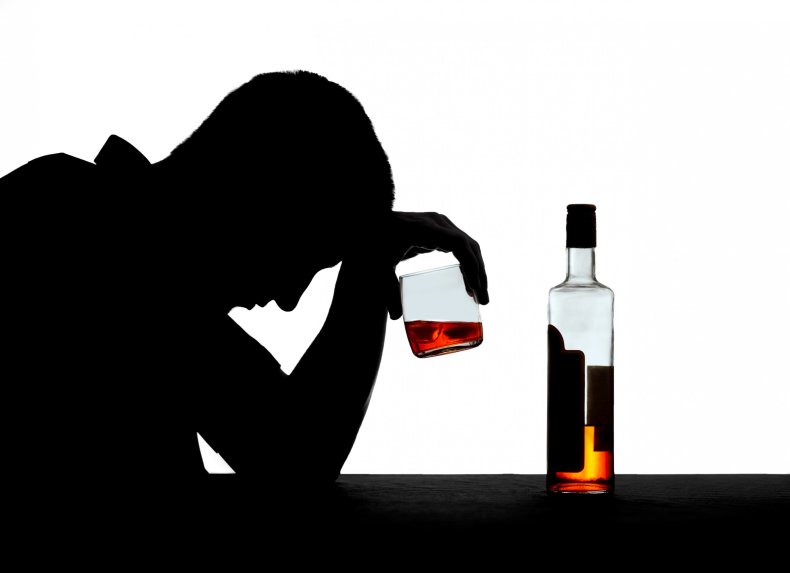
Why Does Alcohol Cause Anxiety?
Alcohol affects the receptors and chemicals in our brain and body. When alcohol is consumed, the neurotransmitters (which send various messages within the brain and body) that affect moods, such as serotonin, dopamine and norepinephrine, are altered.
Dr. George F. Koob, the director of the U.S. National Institute on Alcohol Abuse and Alcoholism (NIAAA), told Newsweek: "Alcohol initially dampens sympathetic ('fight or flight') nervous system activity, in part by suppressing the amygdala," which is a part of the brain that's capable of activating the stress response and causing feelings of anxiety. This dampening of activity in the amygdala leads to temporary feelings of relaxation and reduced anxiety.
However, the brain adjusts to these sedating effects and when the alcohol wears off, "activity in the stress circuitry is higher than normal," which leads to greater levels of anxiety and general dysphoria, Koob said. Increases in such negative emotional symptoms are known as hyperkatifeia and include anxiety.
Bhatt said: "Alcohol can cause both physiological hyperarousal as well as psychological anxiety over time." In most normal cases, our brains have a balance of inhibitory (slowing down) and excitatory (activating) neurotransmitters.
When alcohol is consumed acutely or over a short period, the alcohol works on receptor sites that activate inhibitory neurotransmitters, "essentially slowing down our brains, making us relaxed, feel calm or down."
But, "in essence, for every action a drug or alcohol has, our bodies will produce an equal and opposite reaction," Bhatt said.
Over time, with the chronic use of alcohol, our bodies attempt to compensate for the alcohol exposure by creating changes to the receptors, "decreasing the effects of the inhibitory chemicals, resulting in an imbalance or excess of excitatory neurotransmitters," he explained.
This imbalance can lead to the following physical feelings, according to the addiction medicine specialist.
- Brain fog
- Uneasiness
- Increased heart rate
- Palpitations
- Sweating
- Nervousness (even to the extent of altered mental status)
- Hallucinations
- Seizures
- Death
Koob said: "Hyperkatifeia can occur after a single night of heavy drinking. If someone drinks excessively over long periods of time, the degree of hyperkatifeia when the alcohol wears off can increase and can lead people to return to drinking in order to make the discomfort go away."
Those with moderate or severe alcohol use disorder (AUD) can become "entrenched in a cycle," which sees them become intoxicated, experience hyperkatifeia when the alcohol wears off and then become focused on their next chance to have a drink so they can obtain relief from the discomfort.
Intense anxiety, irritability and general restlessness are common among those with AUD who abruptly stop drinking, the NIAAA director explained.
Anxiety and AUD are common co-occurring disorders. An AUD can worsen an existing anxiety disorder in an individual and vice versa, says the AAC.
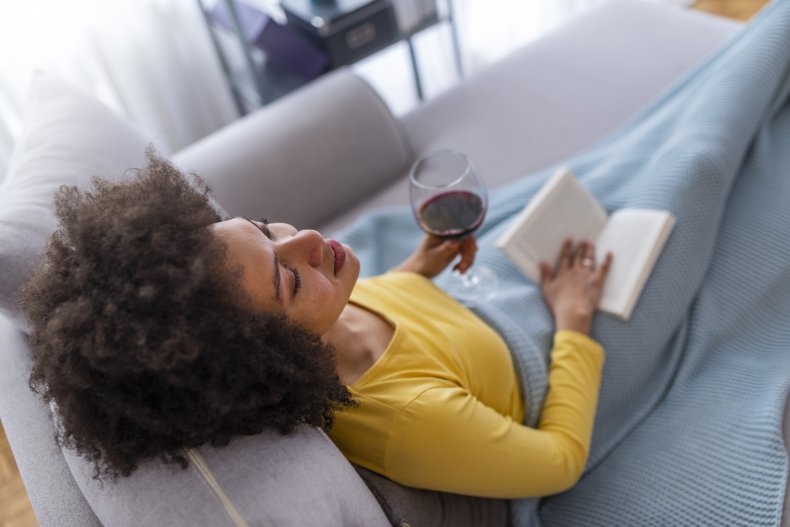
'Hangxiety' and Why You Hate Sundays
Anxiety is a common symptom of hangovers for those who drink heavily during the weekends. This is sometimes called "hangxiety," Koob said, noting anxiety can spike between bouts of intoxication for those who drink excessively on a regular basis, such as people with AUD.
Weinstein said alcohol addiction or AUD is characterized by the inability to control or stop drinking despite negative consequences and to meet the clinical diagnostic criteria for alcohol use disorder, the amount of alcohol consumed is already at an unhealthy level.
"Someone addicted to alcohol will likely not have any anxiety about the start of the work week because they will consume alcohol anyway," which isn't unusual, he said. Some research suggests that as many as 50 to 70 percent of those with an diagnosed alcohol use disorder are able to function in many areas of their lives, including such as keeping their job. Weinstein added.
Alcohol can cause "blackouts" or loss of memory about what happened during the intoxicated states. Alcohol intoxication causes anterograde amnesia (the inability to form new memories from the point of intoxication), Bhatt explained.
When these blackouts become chronic, people become self-conscious and are unable to trust themselves. They feel guilty and depressed about their past mistakes or behaviors while intoxicated. They can also feel anxious and apprehensive about future consequences due to their intoxicated behaviors, according to the psychiatrist.
"This conditions the sober present moments to be an uncomfortable psychological state of mind, often living in yesterday's mistakes and tomorrow's consequences," he said.
For weekend binge drinkers, this often means dreading Mondays, as many times they cannot remember what they did over the weekend, only recalling fragments, or they're told of their negative behaviors by others.
"This often creates more anxiety when sober, and negatively reinforces one to drink again to escape those psychological and physical feelings," the Addiction Center medical content director said.
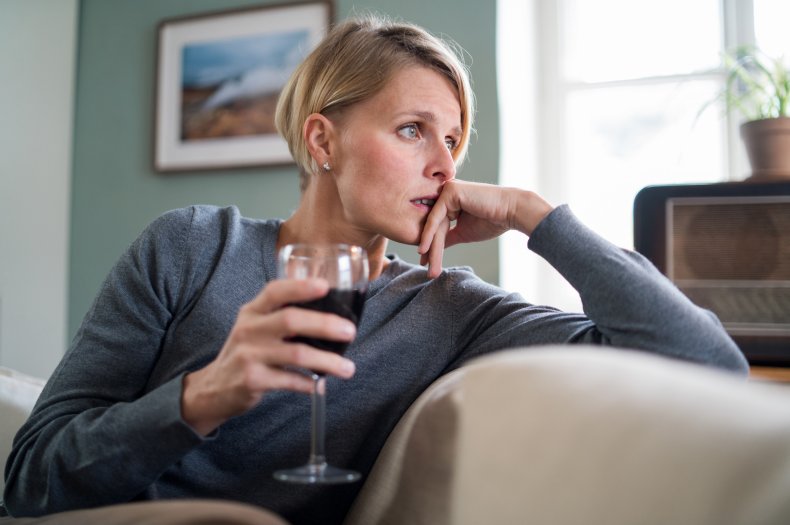
How Long Does Alcohol Anxiety Last?
According to Bhatt, alcohol-induced anxiety can last anywhere from days or weeks to longer periods of time such as months or years. Exactly how long the anxiety lasts varies by individual, depending on several factors. These can include the amount and duration of alcohol consumed, pre-existing levels of anxiety and the presence of other mental and physical conditions as well environmental factors.
Weinstein explained: "Alcohol-induced anxiety is also associated with alcohol withdrawal," for which anxiety symptoms could last for more than a week, with the first 48 hours being the most difficult."
If the anxiety after drinking is related to a hangover, "it could certainly last as long as other hangover symptoms," Koob said. If the anxiety is related to chronic excessive consumption, it is possible for the anxiety to last several months or more after a person stops drinking. "It takes time for the body to readjust."
How to Stop Anxiety After Drinking Alcohol
Koob advised you can "largely prevent the rebound anxiety" by drinking less and staying within the U.S. Department of Agriculture (USDA) dietary guidelines, which is no more than two drinks a day for males and no more than one drink a day for females.
Other than practicing healthy coping strategies (such as exercise or mindfulness), "the best option is simply to let time pass," the NIAAA director said.
Weinstein explained that since anxiety occurs via a biological process based on the effect that alcohol has on neurotransmitters in the brain, "the most effective way to stop anxiety in a circumstance like this is to not drink alcohol."
Bhatt agreed, noting: "The best way to stop anxiety from kicking in after drinking alcohol is to drink in moderation or not at all."
Excessive alcohol can affect the nervous system and if consumed in a chronic and progressive manner, it can have long term mental and physical consequences, the addiction medicine specialist warned.
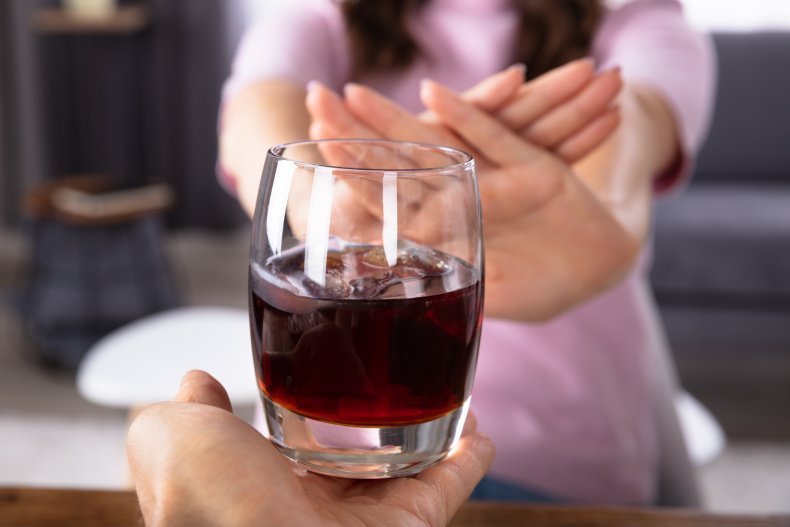
How to Cope with 'Hangxiety'
While it may be impossible to completely calm yourself down when experiencing "hangxiety," below are some measures you can take to make your experience a bit easier, as advised by the AAC.
- Stay calm and give yourself plenty of time to rest. Remind yourself that this is a temporary feeling that should subside once you're feeling better.
- Participate in a self-help group like Alcoholics Anonymous if you feel like you need help.
- Learn more about anxiety, exploring whether your anxiety is caused or made worse by alcohol use.
- Reduce or stop drinking if you are continually distressed by alcohol-induced anxiety or if your drinking habits are interfering with your daily life.
The AAC explains seeking professional treatment such as therapy is important because the alcohol-induced anxiety symptoms will "still be lurking around the corner" if the underlying triggers or causes, from past trauma to other mental health conditions, are not addressed.
For more information about treatment for alcohol-related issues, see the NIAAA Alcohol Treatment Navigator at the NIAAA website to find a highly qualified professional treatment provider near you. You can also call the national helpline of the Substance Abuse and Mental Health Services Administration (SAMHSA), a branch of the U.S. Department of Health and Human Services, at 1-800-662-HELP (4357).
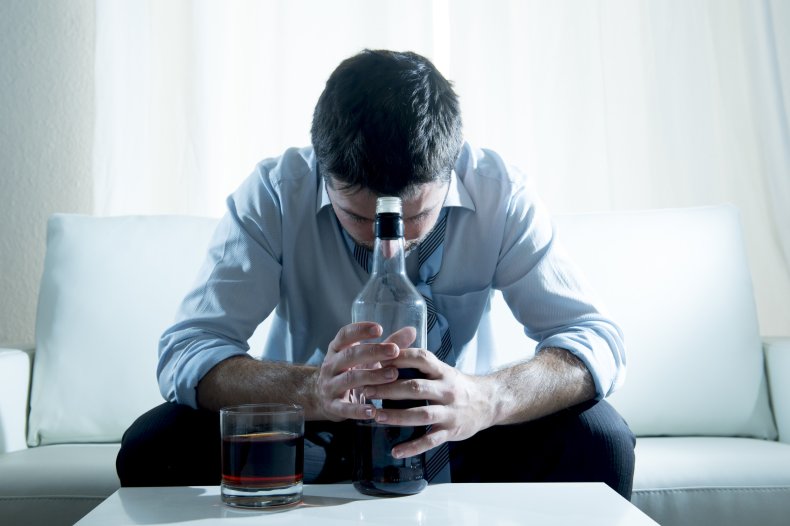


Comments
Post a Comment